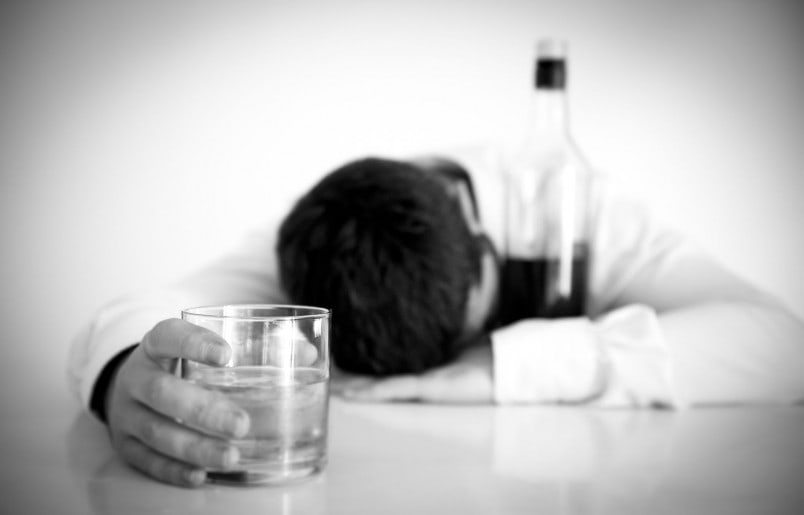
Addiction is a real and serious health condition that can affect anyone at any stage of his or her life. A great deal of research has been done on addiction and its effects on the brain. With the right approach, it is possible to recover from addiction regardless of how strong the addiction is or how long it has lasted.
People take a wide variety of approaches to addressing addiction, and each person is unique in how they overcome addiction and find the motivations to do so. Regardless of the particular approach, all addiction recovery involves understanding what addiction is, including how it changes the brain chemistry, and developing a plan for recovery and then following through on that plan over the long term.
What is Alcohol Addiction?
Those who do not have a thorough understanding of addiction may see it as something that is not so serious. They may believe that a person is simply weak-willed or just unwilling to make the changes. Many addicted people may come to believe this as well, especially if they have tried to beat their addiction and failed in the past.
The truth is that addiction has very little to do with a person’s willpower or willingness to change. It is not an attitude or choice that a person consciously makes, and it is not easy to undo once started. This is because addiction involves real chemical changes in the brain that influence behaviors and feelings. Recovery from addiction requires that this chemistry be altered back to its normal and healthy state.
Addiction symptoms are the direct result of the chemical changes in the brain. The brain becomes dependent on the addicted substance and will do anything to acquire the substance regardless of the consequences. This could include illegal activities like theft and DWI that result in serious legal consequences. A DWI can not only endanger a person’s life and the lives of others but also include fines, jail time and the need to spend money on a DWI lawyer in Austin or elsewhere.
The person may then feel guilty about needing the substance and what they have done to obtain it. This guilt may cause them to stop for a while, but they will ultimately go back to the substance and repeat previous behaviors. This is commonly referred to as the Cycle of Addiction.
The person may then feel guilty about needing the substance and what they have done to obtain it. This guilt may cause them to stop for a while, but they will ultimately go back to the substance and repeat previous behaviors. This is commonly referred to as the Cycle of Addiction.
Recovery Through Redirection
Many people cannot afford expensive rehab or therapy to help them recover from their addictions. The good news is that expensive treatment plans are not necessary for many people to break the addiction cycle. By redirecting life focus and attention, a person can resolve the underlying causes of the addiction and overcome it.
It is important to understand that almost all addiction begins as a coping mechanism for some other life problem. It could be a way to deal with loss or stress at a job or in relationships. It may be the result of depression or some other mental health condition that appears to be treated by the addictive substance. Identifying and facing this underlying problem is a vital part of addiction recovery.
By establishing a renewed purpose, goal and area of interest, an addicted person is able to fill the void inside they have previously filled with the addiction. This often involves finding a new hobby, relationship, job or personal challenge. The interest serves as a fulfillment, allowing the person to feel less need for the addictive substance. If the addicted person can refrain from using the substance for long enough, their brain chemistry will gradually reset to its natural state, and the need for the substance will be reduced over time.
Recovery Through Exercise
Exercise is an important part of addiction recovery for several reasons. First, it may provide a healthy distraction or alternative activity that takes time away from thinking about the addiction and channels into a healthy activity.
Vigorous exercise also has an important effect on brain chemistry. Exercise prompts the natural release of endorphins, which cause the body to feel better. This is commonly called the “runner’s high”. Importantly, these endorphins ease the body’s need for other feel good hormones that would be triggered by satisfying the addiction. Exercise may be an important step in combating withdrawal symptoms and lessen the severity of effects.
Recovery Plan and Withdrawal
All addiction recovery involves dealing with withdrawal symptoms. This is the body’s reaction to a lack of an addictive substance. It can be very severe, especially if a person has been addicted for a prolonged period of time. It is not uncommon for a severely addicted person to hallucinate, have panic attacks or become temporarily suicidal.
It is important to be prepared for withdrawal symptoms by having support in place. This is where professional help and addiction recovery centers do best because they have trained staff available to help a person through the withdrawal stage. A person does not need medication during this stage, but it can sometimes be helpful.
Most important is that a person is able to detoxify their system completely. Once this is accomplished, it makes all the other stages of recovery possible. A person may then need to create a recovery plan that resolves the addiction and prevents relapse. Having the support of friends and family members is vital.
Total addiction recovery is possible for anyone. While it is not easy, total and lifelong recovery is possible by identifying the addiction, creating new purpose and goals in life, developing other healthy habits and overcoming the initial withdrawal period. It is never too late to begin the recovery process and break the destructive cycle of addiction.

